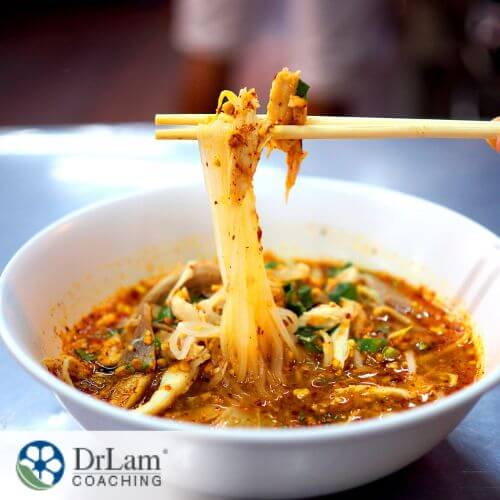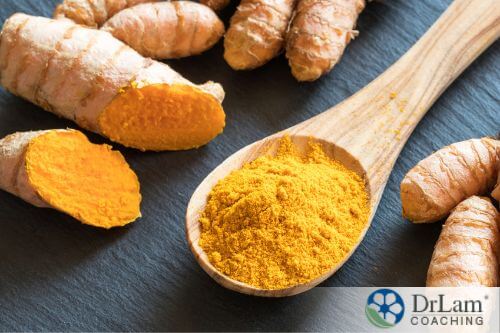 Do you enjoy eating spicy food? Are you concerned about the effects it could be having on your health and digestion? Spicy food can be delicious and cutting it out of your diet means that there are a lot of different dishes that you can’t eat. However, there’s a lot of controversy about spicy food and digestion, with experts weighing in on both sides. If you’re concerned that you may have to give up your favorite food for the sake of your gut, then here’s what you need to know about the issue.
Do you enjoy eating spicy food? Are you concerned about the effects it could be having on your health and digestion? Spicy food can be delicious and cutting it out of your diet means that there are a lot of different dishes that you can’t eat. However, there’s a lot of controversy about spicy food and digestion, with experts weighing in on both sides. If you’re concerned that you may have to give up your favorite food for the sake of your gut, then here’s what you need to know about the issue.
You’ll find spicy dishes in a range of cuisines, from Thai to Indian dishes. But despite how different these dishes are, the spiciness is mostly due to capsaicin, the active ingredient in chilis. This chemical causes that burning sensation you feel when you bite into a chili. Here’s how capsaicin works:
These effects are all normal and temporary and are part of the fun of eating spicy foods for some people.
For a long time, the general view on spicy food and digestion stopped people from trying hot dishes. In fact, for years spicy foods were blamed for a whole range of digestive problems including:
These issues were blamed on spicy food because it eating it can cause pain and cramping in the stomach. And because of these effects, lots of people were put on bland diets.
However, more recent science has found that this isn’t strictly necessary. In fact, you probably only need to avoid spicy foods if they don’t suit your body or if you already have digestive issues such as irritable bowel syndrome or acid reflux.
There’s a strong link between spicy food and digestion. In fact, eating spicy foods may actually boost your digestive health. This is because of two components of most spicy foods.
This is found in foods that contain chili pepper. Capsaicin has many benefits for digestion. It:
 Curcumin is the active component of turmeric and ginger, which are both used frequently in spicy foods. Curcumin also helps your digestive system. It:
Curcumin is the active component of turmeric and ginger, which are both used frequently in spicy foods. Curcumin also helps your digestive system. It:
What all this means is that spicy food may help your digestion, and it can benefit your health in several other ways as well.
Certain studies have found that people who consume spicy foods 6 or 7 times a week have a reduced risk of total mortality. So, you may actually live longer if you eat lots of spicy foods.
People are quick to blame spicy foods for ulcers, but the reality is that ulcers are usually caused by bacteria or taking certain medications. By inhibiting acid production in the stomach, spicy foods may actually help prevent ulcer development or encourage better healing.
In some studies, capsaicin has been shown to inhibit the growth of some cancer cells without harming the healthy cells.
Studies have shown that spicy foods help decrease the appetite and increase the amount of energy you use. So, if you’re struggling to lose weight, then try some spicy meals.
Because spicy foods help to decrease inflammation in the gut and digestive system, it may help boost the immune system and help it to function correctly.
When you get that burning feeling in your mouth and throat after eating spicy food, it stimulates the release of endorphins, which cause feelings of pleasure. So, if you’re a little down, try eating a curry.
Spicy food may also improve your heart health by lowering inflammation, which is a serious risk factor for heart disease. Studies have also shown that spicy foods increase circulation, lower blood pressure, and may even lower cholesterol levels.
Eating spicy foods may also help relieve pain as well, which is why capsaicin is often used in topical lotions.
There is a bad side to spicy food and digestion. Eating spicy foods can cause gastrointestinal symptoms in some people. This may be due to other components of the food, such as acidic or alcoholic elements, but it can also be caused by capsaicin.
Capsaicin speeds up digestion and stimulates gastric mucus production, sometimes causing stomach pain and cramping. It also stimulates the intestines, which can help to boost digestion and elimination. However, it does this by stimulating the nerves and drawing in more water, which can cause contractions of the colon and diarrhea.
Spicy food may also irritate anal fissures, making the discomfort worse. However, studies show that they don’t worsen hemorrhoidal pain, as was previously thought.
 When you have Adrenal Fatigue Syndrome (AFS) even the smallest things can upset your body. This especially applies to your diet. A poor diet is a common stressor that can bring on AFS, which occurs when you’re under unrelenting stress over a long period. This is why the link between spicy food and digestion is so important when you have this disorder.
When you have Adrenal Fatigue Syndrome (AFS) even the smallest things can upset your body. This especially applies to your diet. A poor diet is a common stressor that can bring on AFS, which occurs when you’re under unrelenting stress over a long period. This is why the link between spicy food and digestion is so important when you have this disorder.
When you’re healthy, stress is resolved in the background by the NeuroEndoMetabolic (NEM) stress response. The NEM stress response is activated by the release of cortisol from your adrenal glands and causes changes throughout your body in response to stress. When the cause of the stress is temporary, the NEM stress response turns off when the stress is over and cortisol levels drop.
However, because the modern world is filled with ongoing stressors, this mechanism becomes dysfunctional in many people. This results in ongoing high cortisol levels, which causes hormone imbalances and dysfunctions in many different organ systems.
Here are some of the ways that spicy foods can help with AFS:
People with AFS often experience heart symptoms such as palpitations or a racing heart due to neurotransmitter imbalances and high adrenaline levels. By lowering blood pressure and cholesterol and improving circulation, spicy foods may help protect your heart when you have AFS.
Spicy foods may help with the low or fluctuating moods that are so common with AFS due to neurotransmitter imbalances.
Inflammation is especially common with AFS and is a cause of most chronic health conditions. It is managed by the Inflammation Circuit of the NEM, which includes the gut, the immune system, and the microbiome, or the bacterial balance in your body. These three components work together to help resolve stress.
When you’re chronically stressed, cortisol changes how this circuit functions. Bad bacteria in the microbiome can then start to overgrow the good, causing everything from poor nutrient absorption to stomach problems. You may also experience a leaky gut, where the lining of the gut becomes permeable and allows foreign matter from the gut into the bloodstream. This increases the activation of the immune system, which can remain overactive, bringing on food sensitivities, allergies, and autoimmunity in some cases.
The link between spicy food and digestion could be helpful in alleviating this situation. Spicy food may help your Inflammation Circuit by:
Chronic, widespread inflammation is common with Inflammation Circuit imbalances. By lowering inflammation levels overall, spicy food may help to correct this situation.
Ongoing or chronic infections are common in AFS due to immune system imbalances. Spicy food can help to lower inflammation and rebalance the immune system, which may help your body fight off any ongoing infections.
Eating spicy foods can help to fight bad bacteria in the gut. This will not only help improve the health of the gut, which may improve digestion, but it can also help to rebalance the microbiome, which will lead to body-wide improvements.
Many people experience stomach upsets because of poor gut and microbiome health. This can lead to constipation or diarrhea and may also affect nutrient absorption. By speeding up your metabolism and digestion, spicy foods may help to correct this imbalance.
Although the link between spicy food and digestion seems to be positive, you still need to be careful when you change your diet when you have AFS. When you have AFS, your body will be overly sensitive and prone to reacting negatively to any changes. Because of this, adding spicy food to your diet could set off negative symptoms or reactions. This is particularly true if you aren’t used to eating spicy foods.
When you have AFS, the last thing you need is more stress. That’s why you need to talk to your doctor about the changes first. Also, if you do decide to try eating spicy foods, add them slowly and in small amounts to your diet first and monitor your body for any adverse effects.
As long as you aren’t overeating unhealthy, processed foods, then the best diet is the one that suits your body. And that applies to spicy food and digestion as well. If you find that spicy foods don’t upset your stomach and taste great, then feel free to enjoy them worry-free. While spicy foods can cause diarrhea and discomfort in some people, for the most part, they are safe and actually benefit digestion. However, if you already have stomach issues, you should talk to your doctor before adding lots of spicy foods to your diet.
For more advice on the best diet for you, talk to our team at +1 (626) 571-1234 or click here.
For years people thought there was a negative link between spicy food and digestion. However, it would seem that the opposite is true. As long as your digestive system is healthy, then eating spicy foods may boost your digestion and other functions in your body too.
